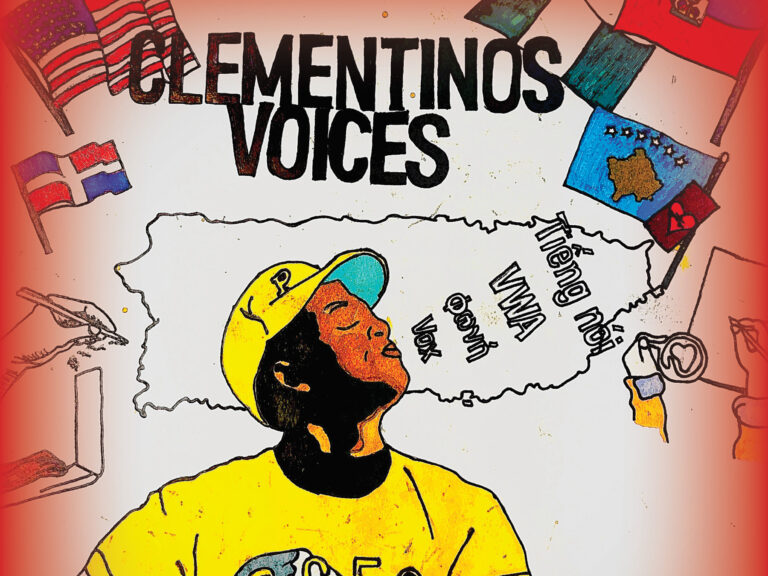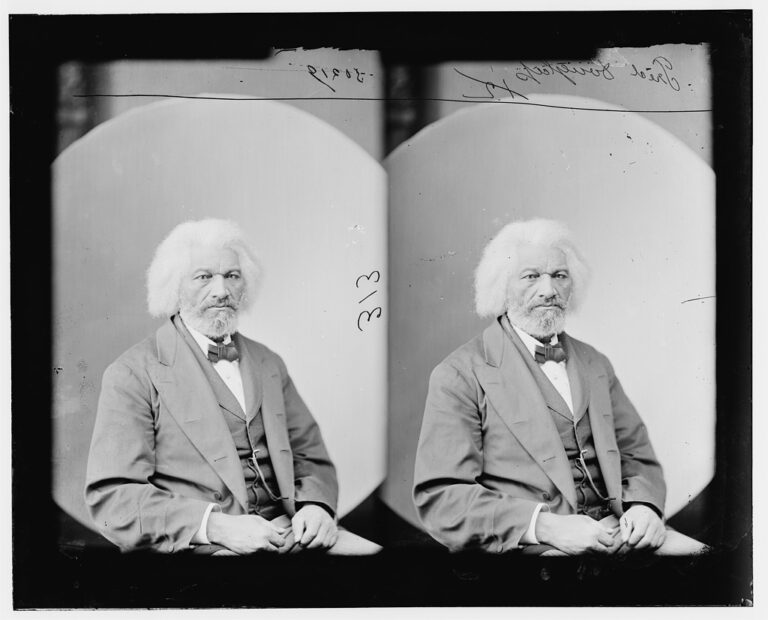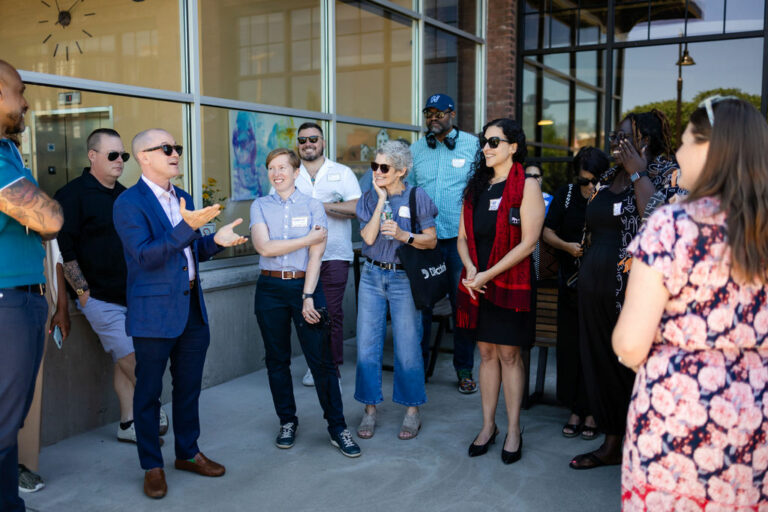Two past grantees share why you should
Filling out a grant application can feel daunting. From familiarizing yourself with an organization’s grant process to determining your eligibility to collecting materials—applying for a grant may seem like a steep hill to climb.
At Mass Humanities, our dedicated staff has worked to make the grant process less overwhelming because we understand many organizations we support are small nonprofits, usually do not have a dedicated grant writer on staff and may be applying for a grant for the very first time.
At a recent workshop in Fall River, Dana Barnes of the Greater Fall River Art Association and Debbie Britt of the National Black Doll Museum talked about their experience as Mass Humanities grantees.
The Greater Fall River Art Association received a Reading Frederick Douglass Together grant. The grant offers up to $2,000 to support public readings and discussions in Massachusetts of Frederick Douglass’ famous Fourth of July address, “What to the Slave is the Fourth of July?” Readings can take place anywhere, from virtual spaces to community centers to historical societies and town greens.
The National Black Doll Museum received an Expand Massachusetts Stories grant. This grant offers up to $20,000 for projects that collect, interpret and/or share narratives about the Commonwealth, with an emphasis on the voices and experiences that have gone unrecognized or have been excluded from public conversation.
Dana and Debbie provided insight into our grant process and shared how a Mass Humanities grant enriched their organization and community.
Greater Fall River Art Association, Reading Frederick Douglass Together

About the grant
We received a grant last year for Reading Frederick Douglass Together. We did our event on July 4th at the Art Association on Belmont Street.
We started with a local duo, the Corey Sisters, who were phenomenal and started the event singing the Star Spangled Banner from the porch of the Art Association.
People were outside sitting underneath the trees and some people were sitting in the street, so it was kind of a festive atmosphere.
About the event
Everyone read with such passion and really took this (event) to heart. We had multi-cultural, multi-generational readers. We had people that were my age to teenagers in high school.
We welcomed Mike Vieira, from Bishop Connolly High School, to be our lead historian and found out that Frederick Douglas is one of his heroes.
It was really a wonderful event and we found some enthusiastic people for the reading.
One of our reader’s sisters was a poet who read a poem she wrote specifically for this event and people were walking away with tears rolling down their faces because it was so powerful. It was a great way to close the event.
We rented a bus, and since Fall River has multiple stops on the Underground Railroad, we were able to see where the houses are in the city.
About the process
I can tell you, having written many different grants this grant was one of the easiest I ever did.
If you have all of your documentation ahead of time and you know your plan, (a Reading Frederick Douglass Together grant) is one of the most important things that your city or town can do.
We have chosen not to apply this year because we would like to give someone else the opportunity to really experience what Frederick Douglass is all about.
I think, no matter what color your skin is or what your background is, this man was tremendously important to all of us. This particular grant was a great way to cope (with what is going on in America) and our event gave us that opportunity.
National Black Doll Museum, Expand Massachusetts Stories

About the grant
There were two African American women, the Turner Sisters (Marie Celeste and Grace B. Turner), that I knew of that were making what are called “Peddler Dolls”.
These women lived in Boston and were very active in the city’s Black Elite, were active in the Harlem Renaissance, owned property down in Oak Bluffs and I wanted to know why they were creating these particular dolls. I just wanted to know their story.
Doll collectors all over the country were asking about these dolls and they also wanted to know why these women created these dolls and where the dolls were now.
About the project
We found out so much about the history of Black Americans in Boston. We found out so much about Black History in Baltimore. We found out about property down in Oak Bluffs that the family owned.
The Turner Sisters’ brother, which is how we found a lot of the information, was a famous urologist at Washington DC Medical. He went to Boston University and left all his papers so there were all these archives.
We hired some students from Boston Public Schools to help us do some of the research by going to Boston Public Library and finding newspaper articles. They thought it was great to be able to go and do some of this research.
Aside from being famous doll makers, we found that Maria Celeste Turner was the first African American woman to attend MIT. Maria and Grace’s mother owned property down in Oak Bluffs, one of the first African American resorts in the U.S. The sisters were friends with Harlem Renaissance author Dorothy West.
We discovered a lot of information on the history of these two women.
About the process
The best thing to do first is figure out what it is you are thinking about and call Mass Humanities.
When I first saw all the (grant) instructions I said ‘No’, but my staff kept saying, ‘We can do this’.
I knew about the dolls and others (at the museum) were saying they could go and look at the books the Turner Sisters wrote and do other research.
If you call Mass Humanities with your idea, they will tell you yay or nay.
It was scary for me at first because I had no clue if our idea would work.
However, once we received the grant and got started, someone went and found books (on the Turner Sisters), someone went and found magazine articles, someone was really into the Harlem Renaissance, and did that research.
One tip I have is once you start, you never know where your project is going to take you. Just figure out one thing that you want to focus on and go after it. Then just let other people come in, help you with the ideas, and then piece it all together.
Little by little, different people picked up all the pieces and what we have now is a fabulous history of two African American women that were doll artists, doll collectors and important figures in Black History.



